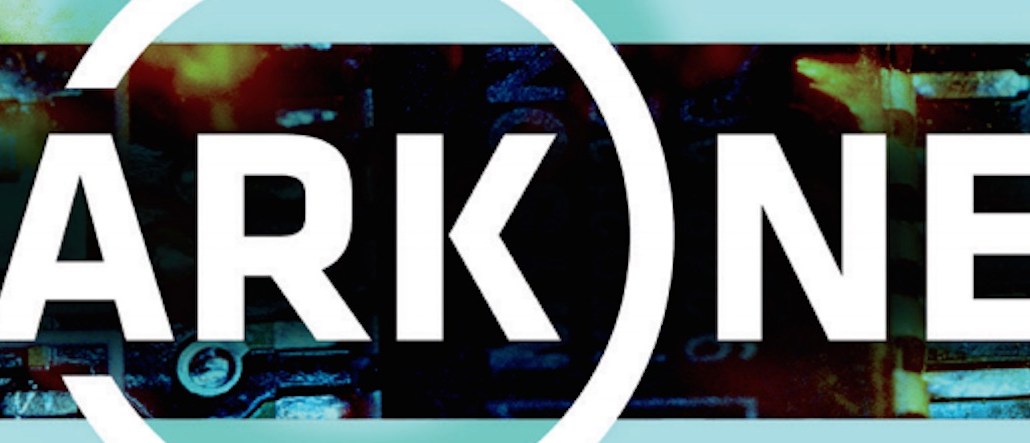Secure your place at the Digiday Publishing Summit in Vail, March 23-25

Vocativ is following in the footsteps of Vice.
On Thursday, the publisher will premiere a new Showtime show called “Dark Net,” an eight-episode season that is the first work out of Vocativ Films. The show will use the same data-mining software that Vocativ analysts and reporters use to trawl the “dark Web” for stories.
Dark Net has eight episodes. Each has three characters, each with their own storylines. The idea is to look at things that started in the “dark Web” and then came to the physical world. The unscripted series will tackle subjects like cyber-kidnapping, cults and the webcam sex industry. The first episode will be about how virtual relationships can impede real intimacy.
Vocativ founder Mati Kochavi, who also founded AGT International, a global security firm, said that “Dark Net” mixes aspects of journalism with documentary storytelling. Vocativ’s pitch is that it combines data-driven analysis, using its proprietary software, with reporting to tell stories. “Dark Net” will use the same technology and experts in its storytelling.
WME-IMG, which brokered the deal, has a minority stake in Vocativ.
Using data that can’t be found by regular people has long been Vocativ’s pitch to differentiate itself in a sea of media sameness, ever since it was founded in late 2013. Today, the company employs 50, a mix of technologists and journalists, and each reporter is paired with a data analyst to analyze the “Dark Web” — the part of the Internet that isn’t indexed or searchable — for story ideas.
For example, a story leading Vocativ.com Monday was about the amount of child porn on Kik. It references Vocativ analysts digging through Kik username directories to find profiles that appear to be posting pornographic images of children and minors. But how much content really needs analysts trawling the unsearchable netherworld of the Internet is debatable. For example, this story on how only 62 people own more than half of humanity’s wealth was reported by plenty of other news sites and didn’t require any extra data analysis.
Then there’s this piece, also published Monday, about how Adele’s “Hello” may finally overtake Psy’s “Gangnam Style” on YouTube — also a story that doesn’t need the deep web to be told. And a piece published last week on Fox reality show “Man vs. Beast” was a human story told via TV host Steve Santagati — a good story, but not one that required a master’s degree in data science to be figured out. (A Capital story from July 2014 quoted several anonymous staffers from the company who said most of their stories did not come from the Open Mind software at all.)
“Everything we do is driven by data,” said Kochavi. “We use to tell a story but also distribute it in a way that people would like to see it.”
But while text-based content once in a while does still require Vocativ to pull out and dust off its data-oriented pitch, it’s video that’s really the big focus for the company, according to Kochavi. (It’s not alone: many viral publishers have made 2016 the year of the video.)
In 2014, the publisher struck a multiyear deal with MSNBC to create long and short video content across NBC Universal. Kochavi said that deal led to the focus on video and piqued Showtime’s interest. He said Vocativ has also seen growth from its own video content, claiming that in the first two weeks of January, it had 70 million Facebook video views.
Last year, Vocativ bought a company called Social Studios, which is developing a tool to automate video production. “That’s going to be more video producing done efficiently and in a cost effective way,” he said.
Early in 2014, the company also reshuffled: former CEO Scott Cohen stepped down to take a role at a Kochavi-owned company; while Vocativ put in place a decentralized structure led by three people: COO Danna Rabin; chief business officer Steve Alperin; and the newly hired Gregory Gittrich, who came to the company to lead content from NBC News, where he was executive editor and vp of news and product.
While Vocativ may consider itself different from other millennial-centric publishers like Vice — which also tells obscure stories — there are similarities. Just like Vice’s HBO deal, Vocativ is now also in a deal with a major network.
Vocativ only started running ads this past year, but Kochavi claims it’s already profitable, through display ads as well as branded content and these video deals. Kochavi wouldn’t provide specifics but said that Vocativ’s revenue in 2015 was in the “tens of millions” and will triple this year. Even so, the site hasn’t made much impact in traffic; according to comScore, its traffic doubled from September to December, but is relatively tiny, at around 6.9 million unique visitors.
“The bottom line is we’re very strong on videos and getting stronger and stronger on content,” said Kochavi. “You’re going to see a lot of us this year.”
Image via Showtime.
More in Media

Media Briefing: As AI search grows, a cottage industry of GEO vendors is booming
A wave of new GEO vendors promises improving visibility in AI-generated search, though some question how effective the services really are.

‘Not a big part of the work’: Meta’s LLM bet has yet to touch its core ads business
Meta knows LLMs could transform its ads business. Getting there is another matter.

How creator talent agencies are evolving into multi-platform operators
The legacy agency model is being re-built from the ground up to better serve the maturing creator economy – here’s what that looks like.





